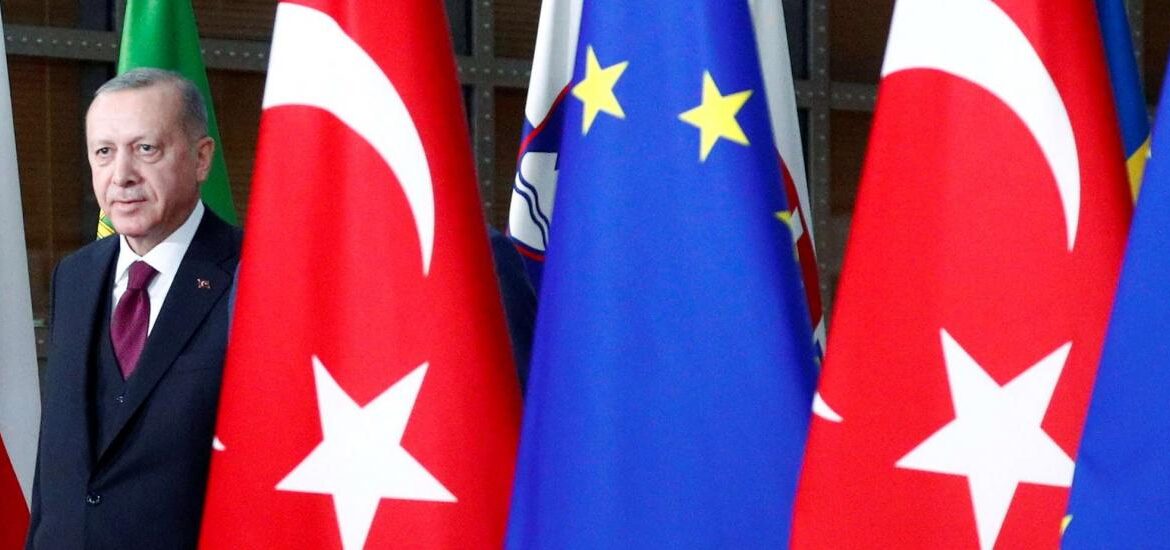The European Union has pledged €3 billion ($3.6 billion) in funding for Turkey to help it support the four million refugees it hosts, said Ursula von der Leyen, the president of the European Commission, on Friday.
“In the future, we plan to allocate an additional 3 billion euros to support refugees in Turkey until 2024,” said von der Leyen following a European Council Summit in Brussels.
“In addition, we will support Turkey to manage migration at its eastern border,” she said.
In 2016, Turkey and the EU agreed on a deal to cut the influx of Syrian refugees into Greece. Under the agreement, the EU promised 6 billion euro in aid to Turkey to be provided in two instalments, which would be used for projects to help migrants. Although Turkey has received the first instalment, the bloc has yet to fulfil the second.
Turkey has repeatedly accused the EU of failing to fulfil its promise to help Turkey accommodate its enormous refugee population.
Following the latest summit on Turkey, EU leaders called on the European Commission “to put forward without delay formal proposals for the continuation of financing for Syrian refugees and host communities in Turkey.”
Europe’s leaders met on Thursday for a two-day European Council summit in Brussels.
Tensions between Turkey and the EU intensified last year over a row between Ankara and bloc member states Greece and Cyprus over maritime boundaries and access to hydrocarbons in the eastern Mediterranean.
Brussels threatened to impose sanctions on Turkey over the issue in December, but EU leaders curbed such measures following a charm offensive led by Turkish President Recep Tayyip Erdoğan.
At a European Council meeting in March, the EU said it was “ready to engage with Turkey in a phased, proportionate and reversible manner, provided that the current de-escalation is sustained and that Turkey engages constructively.”
Reiterating their willingness to improve relations with Turkey in “a phased, proportionate and reversible manner,” in areas of common interest, European leaders welcomed the de-escalation in the eastern Mediterranean on Thursday.
The European leaders stressed that the de-escalation in the eastern Mediterranean needs to be sustained in line with the statement released in the EU’s March Summit.
“In line with the shared interest of the EU and Turkey in regional peace and stability, the European Council expects Turkey and all actors to contribute positively to the resolution of regional crises,” the European Council said.
However, the rule of law and fundamental rights in Turkey remains a key concern for the bloc, it said, stressing that “Dialogue on such issues remains an integral part of the EU-Turkey relationship.”
Noting the beginning of work at a technical level towards a mandate for the modernisation of the EU-Turkey Customs Union, EU leaders recalled the need to address current difficulties in implementing the Customs Union.
Turkey was expecting concrete steps from the EU in Thursday’s summit, especially regarding the modernisation of the EU-Turkey Customs Union to include services, farm goods and public procurement.
The European leaders reiterated their commitment for a comprehensive solution to the Cyprus issue, “on the basis of a bicommunal, bizonal federation with political equality, in accordance with the relevant UN Security Council Resolutions.”
While expressing its regret that the informal meeting in Geneva failed to resume formal talks for the reunification of the divided Mediterranean island, the statement added that “the EU will continue to play an active role in supporting the process.”
Numerous diplomatic efforts to reunify Cyprus under a federal model have failed.
Turkish Cypriot and Greek Cypriot leaders and representatives of Turkey, Greece and the United Kingdom – the three guarantor powers of the island – held informal talks in Geneva in late April, seeking common ground for re-opening formal negotiations. No agreement was reached after the Turkish Cypriot side, backed by Turkey, called for the two-state solution.
Turkey has been an official EU candidate country since 1999. However, accession negotiations have stalled in recent years due to Ankara’s failure to comply with the required criteria on human rights and the judiciary.


